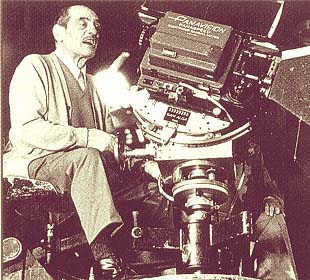Jan
20
Los olvidados
Posted by: Brian | January 20, 2009 | Comments Off on Los olvidados
Los olvidados had quite the negative tone from start to finish just as was mentioned at the beginning of the movie. This film depicted a raw and explicit image of the day in the life of impoverished youth in the slums of Mexico City but to an exaggerated extent to possibly send the message to really get the point across to the audience; give something for them to talk about and then the social issues are understood. For example, the film didn’t just show youth stealing apples or ripping off stores, it when as far as to show a blind man and disabled man getting pushed around, humiliated, and robbed. This was to show how brutal and heartless these characters really were. This film had a few elements similar to Aguila o sol such as the issue of social class being the central theme, both dealing with the lesser class, but it is important to note that Aguila o sol showed the two social classes of the have’s and have not’s where in Los olvidados it was entirely the have not’s . Also, the main characters in both films not having strong family values, especially the lack of father figures, and the use of dream sequences to act as a sobering experience for change to Polito and Pedro. That would be most of the similarities to the two films as there were more differences in terms of direction and tone. The main difference that sticks out is the fact that Los olvidados has a negative tone from start to finish and has no happy, or at least, positive ending. Polito gets his father and saves his friendships, whereas Pedro ends up dead. The problems that are faced at the beginning are not resolved and just as there was a hope for a positive outcome, such as in the case of Pedro’s mother finally accepting her son or when Pedro is attempting to change his life to a positive direction, tragedy and misfortune strikes and no silver lining is considered. The character of El Jaibo is shown to be the consistent and persistent criminal who has a bad intention in every judgement he makes. As Pedro attempts to better himself and to win over his mother, El Jaibo is there to lure him back. An example of this is during the slow motion dream where Pedro is yearning for his mothers’ affection and acceptance and when she offers him the meat, there is El Jaibo nearby who takes his food away and ultimately ruins his dream. One last thing to mention was the fact that I did not like Don Carmelo, the blind man. At the beginning of the movie, where he gets roughed up, I felt bad for him and thought he would be a fighter for justice but towards the end he is like the criminals he despises as he did not have any morals in him. The way he treat Ojitos and the girl Meche and his view on justice, which was to kill the criminals, made him just as bad.
